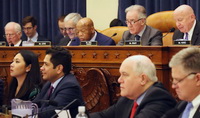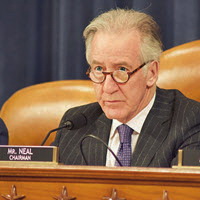The U.S. Environmental Protection Agency (EPA) on July 15 released highly anticipated updates to its ENERGY STAR scoring model – a key federal label that rates and compares U.S. buildings’ energy performance. The scoring update includes changes advocated by The Real Estate Roundtable and other real estate organizations.
 |
|
EPA on July 17 released a 23-page presentation – Update on the ENERGY STAR Office Model for U.S. Properties . |
- ENERGY STAR is a widely recognized, national label used as a market signal for well-managed property assets with smaller carbon footprints. The label impacts nearly 35,000 buildings and plants nationwide, representing more than 5 billion square feet of commercial space. ( ENERGY STAR “Facts and Stats “)
- In a significant improvement affecting office and other property types, EPA will reintroduce a heating degree day (HDD) adjustment into the scoring process. Including HDD in ENERGY STAR equations will result in more equitable ratings for properties in all climates. As a result, some office buildings in colder climates will see score increases – and buildings in warmer locations will not see score decreases. (Analysis and Key Findings from EPA’s Review of the ENERGY STAR Score Model for Office Properties, July 15)
- Last August, EPA announced the first updates to its ENERGY STAR office rating model in over a decade. Initial analyses by The Roundtable’s Sustainability Policy Advisory Committee (SPAC) indicated that EPA’s equations at that time produced arbitrary scoring results. In particular, a SPAC working group initially identified and then advocated for the result ultimately announced by EPA this week – to include the HDD scoring adjustment.
- Since last September, EPA has suspended certifications for office, warehouse and other property types during a “study period” to assess its scoring models with stakeholder groups. (Roundtable Weekly, Sept. 14)
- The Real Estate Roundtable sent a summary of recommended changes to EPA on Nov. 26, urging revisions to the scoring model so that buildings of all sizes located in varying climate zones across the country are rated fairly. (Roundtable Weekly, Nov. 30)

The Roundtable’s Sustainability Policy Advisory Committee (SPAC) is led by its Chairman, Anthony E. Malkin (Empire State Realty Trust), left, and Vice Chair Daniel Egan (Vornado Realty Trust)
– enlarge photo –
- “The Roundtable’s constructive engagement with the EPA over the last 10 months has resulted in a better outcome on an issue with massive national implications for our industry,” said Anthony E. Malkin, Chairman and CEO of Empire State Realty Trust, and Chairman of The Roundtable’s Sustainability Policy Advisory Committee (SPAC). “We commend EPA for acting on our feedback and their transparency and candor, which led to an improved set of ENERGY STAR scoring models. In particular, the agency took the corrective action to account fully for climate variations so that all types of commercial buildings – no matter where they are located, in hot or cold temperature zones – are on a level playing field as owners respond to investor, tenant, and other market demands to attain ENERGY STAR ratings for their assets.”
- On July 17, EPA released a 23-page presentation – Update on the ENERGY STAR Office Model for U.S. Properties.
- On July 22, updated office property scores will be live in EPA’s Portfolio Manager, an online tool used to measure and track energy and water consumption, as well as greenhouse gas emissions. EPA advises stakeholders to download their current scores before July 21, as Portfolio Manager will be unavailable that day to allow for the release of the updated score model.
- On July 31, EPA will reinstate ENERGY STAR certification for office buildings, after its suspension since last September. (EPA’s ENERGY STAR resources)
Malkin also noted, “The Roundtable’s work with EPA is far from finished. We are in the midst of active engagement to ensure that federal-level building energy data, on which ENERGY STAR is based, is robust and reliable; that EPA continues its recognition programs for tenants to label high-performance leased spaces; and that the EPA provides critically important federal guidance to help synchronize emerging state and local mandates that address buildings and climate change. The ENERGY STAR whole-building rating program is now back on track, providing The Roundtable with the policy foundation we need to pursue other important objectives on SPAC’s agenda.”










